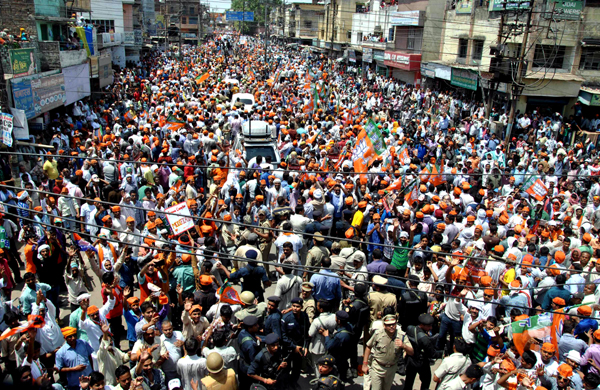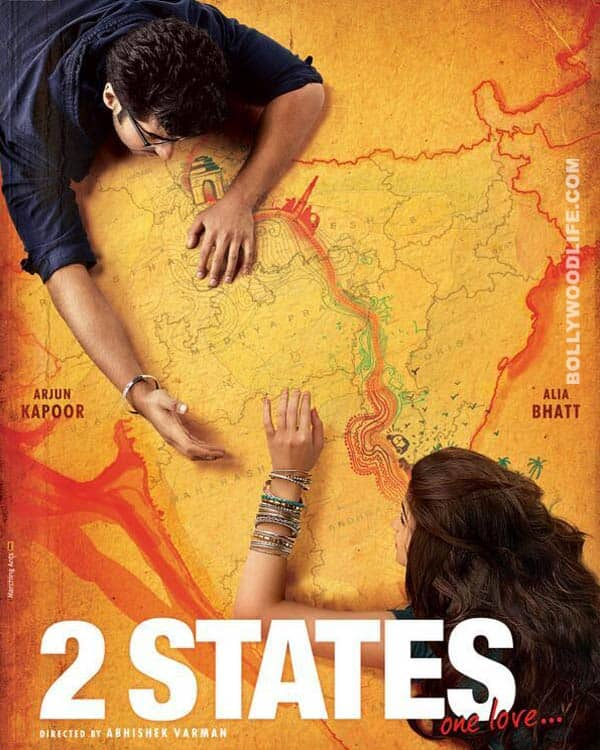Not many books or movies successfully capture the oneness of India despite all of its diversity. Few go further and capture how divided it is despite its oneness.
Based on and named after Chetan Bhagat's book, 2 States (inspired by the real life romance between the author and his wife) does exactly that.
An appropriately vivid tale about how two contrasting India cultures are made to reconcile in the face of love, 2 States is utterly Indian in every sense of the word, evokes both pride and dismay, and will leave you yearning for more.
If you haven't read the book (I haven't), you should definitely watch the movie for the whole package - emotion, laughter, humour, and a good story to back it up. All of these you can find in Bhagat's other works (which later spawned movies of their own), and he knows how fully well how to bubble-wrap all these elements in his lucid manner.
Back to the movie. Not only did it leave me satisfied, it also gave me many things to think and talk about but perhaps the one thing that got me thinking was this:
For Delhiites and Punjabi Delhiites in particular, 2 States reinforces the idea of the typical Punjabi and the stereotype that revolves around the community. As the reel ticked on, I saw glimpses of myself, my folks, and my community as a whole. Reality bites hard for the Punjabi viewer when we are seen as an unabashedly disparate, undesirably boisterous lot (which we kinda are). Though the references are mostly correct, the film purveys the idea that Punjabi-ness is in a way, some kind of a cultural abomination to and in India.
Post-show, the more I ponder over what I saw, the more it makes me realize that maybe the Punjabi Delhiite wasn't actually inaccurately represented. Since I work in the Middle East, where several thousand Indians ship out to make a better living, the very mention of 'Delhiite' is enough to cause an unexpected flinch of the eye. A latent awkwardness that pervades the air for a second. Add to that the term 'Punjabi', and it may well be enough to give a 'Tamilian' worry lines all over his forehead.
Much to my surprise, this isn't what happens in '2 States'; at least between the lovers. A Punjabi Krish (hardly the typical Punjabi munda) and an uncharacteristically Tamilian Ananya , the two central characters played by Arjun Kapoor and Alia Bhatt respectively, find common ground in everything else - tandoori chicken, Economics and the simplest relationship between two persons - friendship. The stark difference in their backgrounds only begins to appear once they decide to get married and bring their parents into the picture.
And you guessed right: the parents simply do not get along with one another as prevailing cultural stigmas get fortified, with neither side refusing to budge.
Throw in a Punjabi wedding for good measure, and one truly begins to understand the deep chasm north Indian culture vis-a-vis the south. We are loud; they are reticent. We are overly possessive; they are indifferent. When under the influence, we are fun and yet a menace to deal with; they're perennially wonkish. All this and more brings out the incongruity of India's varied cultures.
I don't know whether this movie will draw the ire of Punjabis (or even Tamilians); whether it will encourage them to improve how they interact with other communities (better yet), or simply choose not to react to it.
I do know that while there is a minority of revisionists within the Punjabi community, most of us take pride in what we do, eat and drink. It is the way how the Punjabi simply is, and I believe a lot of it should remain as it is. Though I am among the most passive, I can speak for Punjabis, because I am one. We all need to speak up and sometimes against our folks.
Beyond a shadow of a doubt, 2 States bears testimony to India's cuItural divisions. In the India we want our children to live in, it should be absolutely acceptable for a Tamilian to marry a Punjabi, an Assamese to wed a Gujarati, or for any two Indians to whom community comes second to love.
All in all this movie is a treat to watch. Perseverance conquers all.

